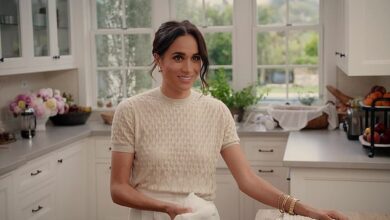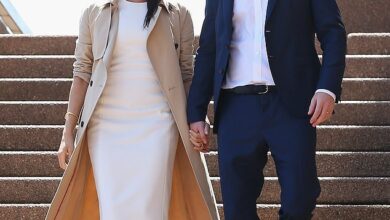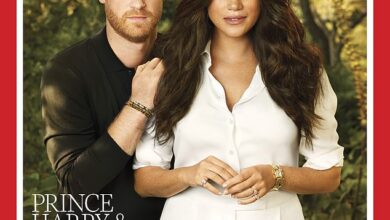What my friends Prince Harry and Meghan are REALLY like, reveals BRYONY GORDON – who has been to their house and was given a pot of homemade jam
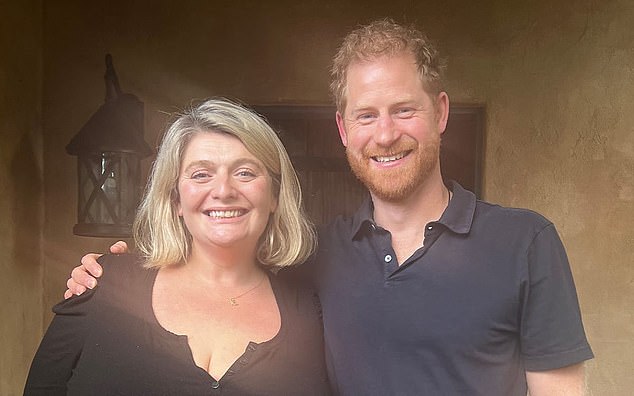
There’s a strange thing that happens when you make the acquaintance of somebody who happens to be very famous.
People want to know what they are like, but only if it tallies with the version of the famous person that they have created in their own head.
I mention this because about eight years ago I became friends with Prince Harry, and ever since life has been peppered with questions from people curious to know more about his character: has he been brainwashed, is he intent on bringing down the monarchy, does he smell of money, and so on and so forth.
And when I tell them my honest opinion, that he is kind, funny and pretty damn normal, all things considered, I often see a flash of disappointment cloud their faces, followed quickly by words to the effect of ‘well you would say that, you know him’, as if knowing someone should disqualify you from having a trusted opinion about them.

Bryony Gordon became friends with Prince Harry after she was invited to the launch of a mental health campaign, led by him, Prince William and Kate, in 2016
Anyway, I wanted to write this column about what I know of Prince Harry, because, as he prepares to turn 40 this weekend, I’ve heard a lot of fairly negative things said about him, character assassinations that bear no resemblance to the man I’ve come to count as a friend, the one who cares passionately about injured veterans, and who’s done more than most to change perceptions of mental health in this country.
Becoming friends with the Duke of Sussex was not a turn of events I could have predicted back in 2016, given that feckless journalists like myself writing about their many, many shortcomings – depression, OCD, addiction issues – didn’t tend to be invited to hang out with Royals.
Or at least they didn’t until the spring of that year, when Harry and his brother and sister-in-law, the now Prince and Princess of Wales, launched their mental health campaign Heads Together.
As one of the few journalists at the time banging the drum for mental health (and oh, how I banged on about it), I received an invitation to the project’s launch at the Olympic Park in Stratford, where I met the three ‘principals’, as they were referred to, and inadvertently offered to run the London Marathon for their charity.
(Heads Together had been selected as the event’s official charitable partner, so it seemed the polite thing to do, in lieu of being able to curtsey properly.)
Over the next year, I spent quite a lot of time with the young royals, chatting about all things mental health. There were media events and training events and even intimate Christmas drinks at Kensington Palace. I got on well with all three, but I seemed to have a particular connection with Harry, bonding, as humans often do, over the fact we’d both spent a bit of time on the naughty step.
But I also got the sense that he understood the darkness I spoke about, and found myself asking if he’d be the first guest on the mental health podcast I was about to launch.
To my surprise, he said yes.
Even more surprising was the honesty that poured out of him as we recorded the podcast in Kensington Palace.
He was nervous about what he wanted to tell me – nervous enough that I found myself trying to calm and reassure him. But there was good reason for his anxiety. At the time, the Royals were not known for anything other than a stiff upper lip. It was not the done thing for them to talk about their feelings.
And so it was genuinely groundbreaking when Harry – or Haz, as I had by then taken to calling him – spoke so movingly about the grief he bottled up after the death of his mother, Diana.
‘I can safely say that losing my mum at the age of 12 and therefore shutting down all of my emotions for the last 20 years has had a quite serious effect on, not only my personal life, but my work as well,’ he told me. ‘It was 20 years of not thinking about it and then two years of total chaos.’
When the podcast aired in April 2017, it made headlines around the world. My social media channels were inundated with people who were grateful to see such a high-profile man from such a buttoned up family talk so openly about grief.
Professor Sir Simon Wessely, then president of the Royal College of Psychiatrists, said that the Prince had achieved more in terms of communicating mental health issues in a 25-minute interview than Wessely had in a 25-year career.
‘He has a reach across the world that people like me can only dream of,’ said Wessely. ‘He will have communicated in a way that I have been working all my life to achieve.’
Marjorie Wallace, founder of the mental health charity Sane, said: ‘It’s done more good than many, many campaigns. It’s given a message of hope that feelings left for too long can become malignant – but that it is never too late to seek help.’
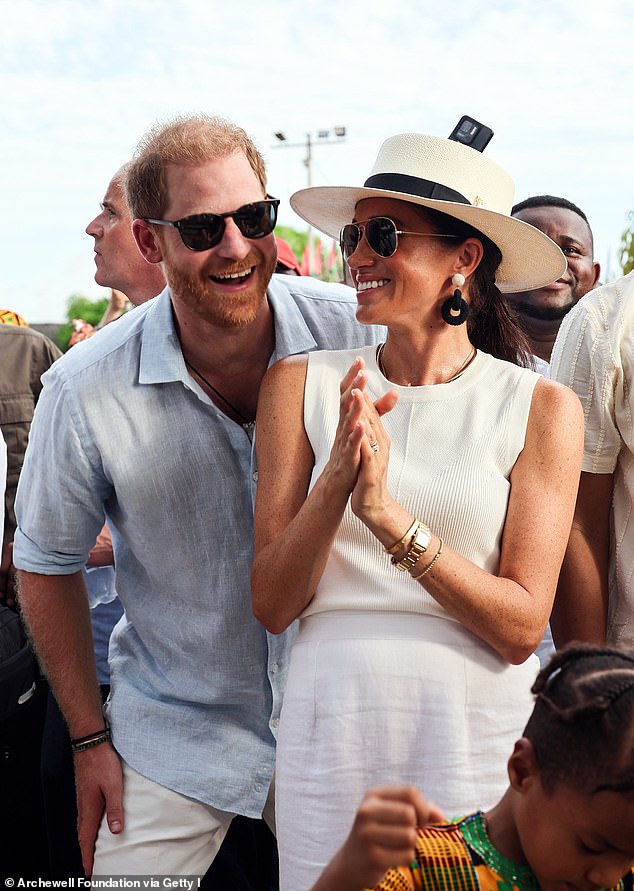
Last year Bryony travelled to Harry and Meghan’s new home in Montecito, to interview him on the eve of the publication of his book, Spare
It felt like a genuine turning point in terms of how we view mental health. For me, it was also a key moment in my own personal journey – the fact that this huge public figure had trusted me with his story, not in spite of my own chequered mental health history, but because of it.
I didn’t expect to hear from Harry again – he was a Royal, after all – so I was touched when he called to congratulate me after I finished the marathon.
We kept in touch through various mental health projects. In early 2018, he introduced me to his wife-to-be, Meghan Markle, whom I have also come to count as a friend, meeting for lunch and working with her as she got behind charitable causes in the UK.
I visited them at their then-home Frogmore Cottage in Windsor, was with them at Buckingham Palace on the day that they left the UK in 2020, and last year I travelled to their new home in Montecito, to interview Harry on the eve of the publication of his book, Spare.
I spent an afternoon at the house, the kids running around happily as we drank tea. Harry proudly showed me the DIY photo wall he’d recently created, featuring pictures of his mum.
When I left, packed off by the happy couple with a jar of their homemade jam (which I then left in the back of a taxi in a jet-lagged stupor; somewhere in Los Angeles, a cab driver has one of the earliest batches of American Riviera Orchard’s produce), I was reminded of the fact that they are a pretty ordinary couple existing in an absolutely extraordinary situation.
There are no airs or graces with them, no desire to do anything other than protect their children from an increasingly digital world that likes nothing more than seeing the worst in people. A world that forgets that no matter how high profile a person is, they’re just doing their best, like everyone else.
This is not what people want to hear, but it is what I’ve found, time and time again.
So Happy 40th Birthday, Haz. May you continue to make a difference for the next 40 years, regardless of the naysayers.

